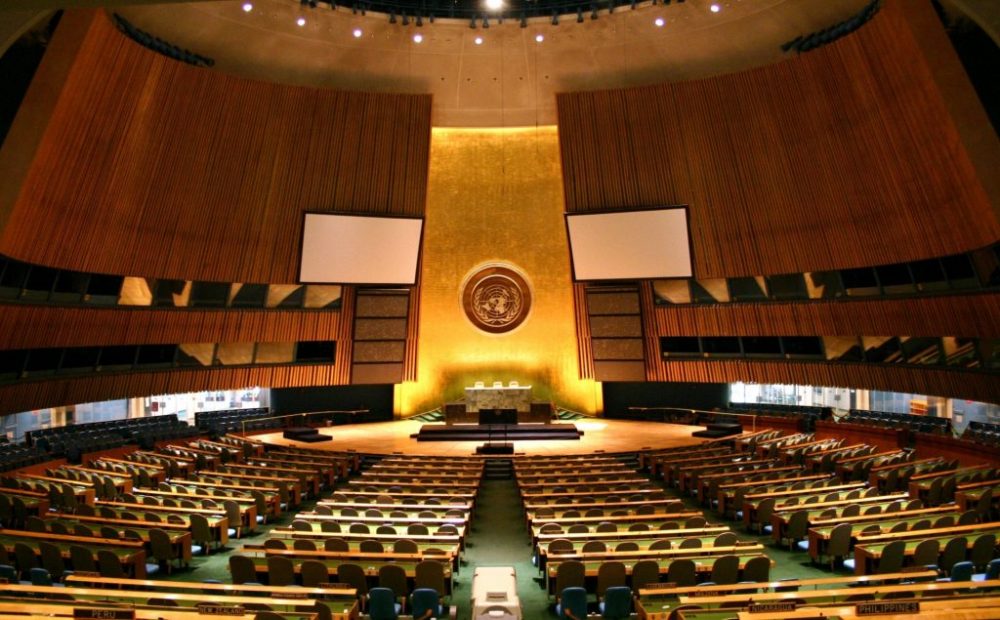Prime Minister Malcolm Turnbull has hailed a new 12-country trade deal which covers 40 per cent of the global economy as a “gigantic foundation stone” for Australia.
The Trans-Pacific Partnership (TPP) was clinched in the US city of Atlanta overnight after days of marathon talks and could influence everything from the price of cheese to the cost of cancer treatments.
What’s in it for Australia?
The Government says the TPP deal will eliminate 98 per cent of all tariffs on everything from food to manufactured goods, resources and energy.
Sugar: Access into US to increase from 107,000 tonnes to 207,421 tonnes. Could see exports to US climb above 400,000 tonnes by 2019/20
Beef: Deal liberalises exports to Japan, and eliminates tariffs into Mexico, Canada and Peru
Dairy: Japan tariffs will be eliminated on a range of cheeses covering over $100 million in existing trade
Rice: For the first time in over 20 years, Australia will be able to export more rice to Japan
Resources and energy: Immediate elimination of tariffs on iron ore, copper and nickel to Peru
Manufacturing: Immediate elimination of tariffs on iron and steel products exported to Canada, and to Vietnam within 10 years
Intellectual property: TPP will not require any changes to Australia’s patent system and copyright regime
Biologic medicines: Australia’s existing five years of data protection for biologic medicines will not change.
Tobacco: Companies will not have extra power to challenge the plain packaging legislation under the TPP.
Source: Dept of Trade
The controversial deal involves Australia, Canada, the United States, Japan, Malaysia, Mexico, Peru, Brunei, Chile, New Zealand, Singapore and Vietnam.
It is expected to face great difficulties getting through a hostile US Congress and is also looking shaky in Canada, which is facing an imminent national election.
The Australian Government also has to convince parliament to back the agreement, Labor is seeking a briefing about the closely held detail of the deal.
“There are winners and losers but overwhelmingly this will drive enormous job growth and create all sorts of wonderful opportunities,” Trade Minister Andrew Robb said.
The exact details of the agreement remain under wraps, with the official text to be finalised in coming weeks before being released for scrutiny.
Under the deal, 98 per cent of tariffs across TPP countries will be slashed on products including beef, dairy, wine, sugar, rice, horticulture, seafood, manufactured products, resources and energy.
Last year, about a third of Australian exports – worth $109 billion – went to TPP countries.
“These deals are win-win,” Mr Turnbull told Melbourne radio station 3AW.
Media player: “Space” to play, “M” to mute, “left” and “right” to seek.
The deal is seen as a legacy-defining achievement for US president Barack Obama but it still has to be ratified by a sceptical and often hostile Congress.
It is also looking shaky in Canada, which is facing an imminent national election.
Disagreement between Australia and the US on how long pharmaceutical companies could retain intellectual property rights over their products threatened to derail the talks, but a last-minute deal was struck.
“This deal has no impact on the Pharmaceutical Benefits Scheme. We believe we’ve got the balance right,” Mr Turnbull said.
Opposition says TPP cannot impact medicine prices
The Federal Opposition said the deal had “significant potential benefits” but it wanted to examine the details when they are released before voting on the deal in Parliament.
Media player: “Space” to play, “M” to mute, “left” and “right” to seek.
“We said a red line for us was ensuring that there would be no impact on the accessibility and affordability of medicines in this country,” Labor’s trade spokeswoman Penny Wong said.
“I understand that Mr Robb has said that he’s delivered on that. We’ll look forward to seeing the detail of that agreement.”
The Greens are critical of the secrecy surrounding the deal, sceptical about the economic benefits and worried Australia could be sued under investor-state dispute settlement provisions.
“They haven’t stopped corporations taking strategic litigation through these shady tribunals in other parts of the world, and we don’t expect they will work here,” Greens trade spokesman Peter Whish-Wilson said.
Independent senator Nick Xenophon said the deal is a “Trans-Pacific dud”, saying past deals had not delivered promised benefits, and concerns remained about medicine prices and Investor-State Dispute Resolution provisions.
Australia’s two-way trade with TPP nations
- Japan $70 billion
- US $55 billion
- NZ $22 billion
- Singapore $21 billion
- Malaysia $18 billion
- Vietnam $9 billion
- Canada $3.4 billion
- Mexico $2.5 billion
- Chile $1.2 billion
- Brunei $1 billion
- Peru $223 million
Source: DFAT
“It seems the trade imbalance — that is the amount of exports that go to the other country we’ve signed up with compared to their imports — they’ve done much better,” Senator Xenophon said.
“It is a dud deal because there’s a lack of transparency and scrutiny over the whole process; the talks have been negotiated in secret.”
In the US, the deal is seen as a legacy-defining achievement for president Barack Obama but it still has to be ratified by a sceptical and often hostile Congress.
Mr Obama said the deal “levelled the playing field” for farmers and manufacturers.
“It includes the strongest commitments on labour and the environment of any trade agreement in history, and those commitments are enforceable, unlike past agreements,” Mr Obama said.
Critics have said the deal, negotiated over five years, threatens to hurt jobs and consumers across the globe.
However, the deal has already raised concerns from at least one Coalition backbencher, with LNP member George Christensen threatening to cross the floor.
The Queensland MP said the outcomes for Australia’s sugar industry look to fall short of what was hoped for in terms of the deal with the US.
“I will be reserving my right to cross the floor on the deal, depending on the outcome of other factors plaguing the sugar industry,” he said.
“I’m very disappointed at how the land of the free has determined to block free trade and deny our sugar growers access to their market.”
Government spruiks benefits of trade deal
In agriculture, sugar producers will get more access to the US market and Australia will be able to export more rice to Japan.
Tariffs on wheat and barley exports to Mexico and Canada will be scrapped, as will those on wine to Peru, Malaysia and Vietnam.
When it comes to manufacturing, iron and steel product tariffs to Canada will be scrapped, paper and paperboard duties will be phased out to Peru.
Mr Robb said the deal was “particularly good” for Australian services, with better access for education, transport, telecommunications, financial advice and health providers to TPP countries.
The deal will also raise the foreign investment screening threshold for non-sensitive sectors from $252 million to over $1 billion.
All TPP countries are now “finalising arrangements” for the release of the text of the agreement, which then has to be approved domestically by each nation.
Final TPP negotiations focused on pharmaceuticals
In Australia, it will be tabled in Parliament before being reviewed by the Joint Standing Committee on Treaties.
The US allows pharmaceutical companies an exclusive period of 12 years to use clinical data behind the approval for a new biological drug, and was pushing for that in the TPP.
But Mr Robb said Australia would not move further than five years, despite the US pushing for a compromise eight-year period.
In the end, US trade representative Michael Froman said the deal would offer at least five years’ protection for biologic drugs, plus some time for other measures.
He said the goal was to have a comparable outcome for such drugs across the 12 TPP countries.
Ruth Lopert, from George Washington University in the US, told the ABC that the medicines involved were often those derived from living organisms and were amongst the most expensive on the market.
“Many [fusion_builder_container hundred_percent=”yes” overflow=”visible”][fusion_builder_row][fusion_builder_column type=”1_1″ background_position=”left top” background_color=”” border_size=”” border_color=”” border_style=”solid” spacing=”yes” background_image=”” background_repeat=”no-repeat” padding=”” margin_top=”0px” margin_bottom=”0px” class=”” id=”” animation_type=”” animation_speed=”0.3″ animation_direction=”left” hide_on_mobile=”no” center_content=”no” min_height=”none”][of these] drugs are used for the treatment of various cancers, for multiple sclerosis, for many conditions, and because they’re derived from living organisms they tend to be more complex to develop and they tend to carry much higher price tags,” she said.
“So there is a lot of money at stake in any potential delay to getting these biologics onto the PBS.”[/fusion_builder_column][/fusion_builder_row][/fusion_builder_container]












